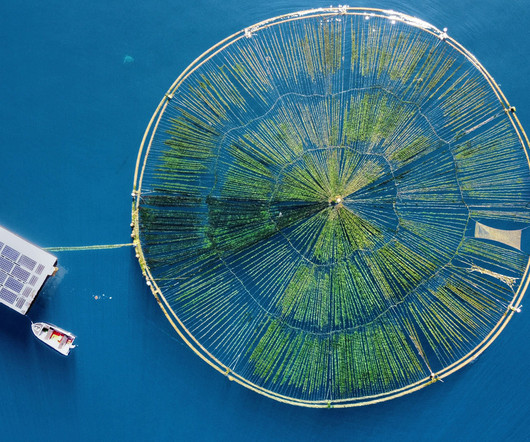Pilot Project Sends Kelp–and Carbon–to the Seafloor
Cars That Think
DECEMBER 21, 2023
The Climate Foundation , the Seattle-based company behind the project, has found that this deep cycling makes kelp grow three times as fast as it can when kept in shallow waters, as seaweed farmers do now. It’s our hope in 2024 to validate our model and then, as [they] say in Silicon Valley, design it once and build it a million times.”















Let's personalize your content